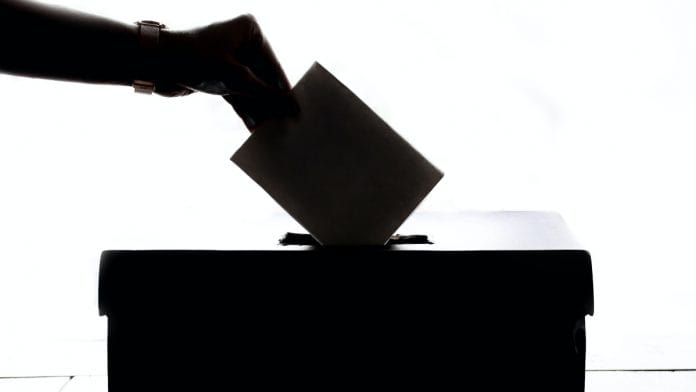
Thank you dear subscribers, we are overwhelmed with your response.
Your Turn is a unique section from ThePrint featuring points of view from its subscribers. If you are a subscriber, have a point of view, please send it to us. If not, do subscribe here: https://theprint.in/
- Under Article 324 of the Indian Constitution, Election Commission (EC), as a guardian of elections, is required to periodically conduct FREE & FAIR elections to the Parliament and the State Assembly. A free election is one where all registered voters can freely exercise their franchise without any fear or duress. Whereas a fair election is one where all votes have equal influence on the outcome of the election results and where all the votes polled are correctly tallied. For this purpose, under The Representation of the People Act, 1950 & 1951, The Registration of Electors Rules, 1960, Conduct of Election Rules, 1961, etc. various legal or ethical provisions have been made to follow before, during and after an election. Apart from the duty of the EC to ensure that the voters have access to reliable information, polling place, intimidation/fraud free voting, etc., EC is also required to announce correct results after counting the ballots accurately. Any deficiency or deviation therefrom in this regard is to be constituted as having not conducted the underlying Election/s to meet the requirement of “Free & Fair elections”.
- Recently there has been a lot of information on the public domain pointing that there has been mismatched in the no. of Votes really polled and the No. of Votes counted, both during the Parliament and the State Assembly Elections. It is often an item of news that the no. of Votes counted were marginally to substantially higher than the no. of votes actually polled. It is a serious matter as there cannot be any difference between the two figures. Even a single Vote counted which has not been polled at all, is a serious matter and it amounts to having not conducted FREE & FAIR elections as the ballots have then not been counted accurately. It is not clear as to why Political Parties are not taking this matter seriously. Nor our Hon’ble Supreme Court is taking any Suo Moto cognizance of such differences, as it is also duty bound to act as a watchdog to protect the provisions under the Constitution. There can only be two possibilities. If such information regarding mismatch between the ballots polled and counted as available in public domain is incorrect, it must be clarified, and factual position be stated. In case, such information of mismatch is correct, underlying elections need be declared as null and void ab initio. This would enhance citizens’ trust in democratic system and processes, as the core of democracy is elections.
- Further, information in Public domain on the use of Electronic Voting Machine (EVM) by the EC also points out that its software gets compromised and thus its results are not trustworthy. Although it has not been established so far whether such allegations are correct or not, one can not deny the fact that any electronic device can be hacked/misused. There is no foolproof system available to make electronic devices sans hacking. If not for allegations of manipulation, the doubt on the possibilities of hacking cannot be ruled out entirely. And as long as such doubts remain in Public mind, the elections conducted through the EVMs can not be considered as Free & Fair elections as per the various provisions stated above. I am not advocating simply because the fact that many of the other countries have banned use of the EVM in their elections, but because use of EVMs is not free from doubt and the doubt makes it difficult to classify conduct of any election through EVM as Free & Fair. One may argue that the use of EVM is very convenient and time saving, where results are declared within a very short span of having conducted any election; and re-introduction of the paper ballot system would be opposite of this argument. Yes, there is some logic to it. However, one must keep in mind what is the objective of conducting any election. Is it to conduct a free & fair election or just to conduct election in any manner to suit convenience? As our Constitution provides for conduct of Free & Fare election, we cannot use any device which prima facie has infrastructurally doubtful attributes.
- Above opinion has not been made in favor of any political affiliation or so, rather it has been made to consider rationalizing the electoral system which would facilitate free & fair elections for all political parties. There cannot be any apprehension/disadvantage to the political party doing social good, even if the paper ballot system is re-introduced, as it would continue to be a favorable party affiliation to the people because of the said social good. Political parties, stakeholders and the Hon’ble Supreme Court may like to take cognizance and follow up.
These pieces are being published as they have been received – they have not been edited/fact-checked by ThePrint.


COMMENTS